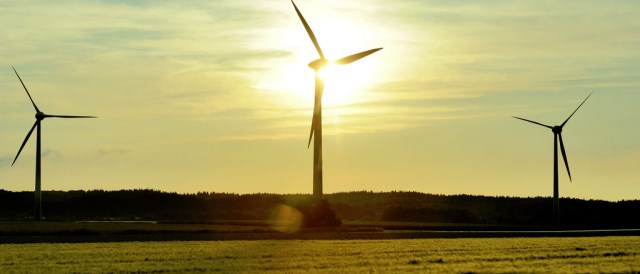Assaults on the Energiewende continue unabated. Craig Morris says rebuttals are becoming hard to write because the arguments in the original articles do not flow from one to the other.

Attacks on the Energiewende continue – and yet they move. (Photo by Thaddäus Zoltkowski, CC BY-NC-SA 2.0)
Are you beginning to feel like you can’t hold thoughts longer than a 140-character tweet? Me neither, but I’ll be dad-burned if journalism isn’t starting to look like a disjointed list of unrelated tweets. A recent article at The Telegraph is a wonderful example. One thought does not lead to another in that journalist’s writing.
Given the lack of structure in the article I’m responding to, I have no hope of achieving proper composition in my response, so I’m going to make this as quick and painless as possible. Consider all of this just a bunch of tweets from a twit.
- “Environmental Minister Peter Altmaier says costs could reach €1 trillion by 2030”: he did not subtract any offset costs, and what is the price without the energy transition?
- “Germany’s nuclear plants are not at risk from such flooding…”: six of Germany’s nuclear plants have no flood protection, and flash floods this year – the second flood of a century in a decade – made Austria’s only (decommissioned) nuclear plant look like an island
- “… nor are they built on tectonic faultlines”: they are built on tectonic fault lines, as is the Fessenheim plant built directly on the German border (some 25 km from where I am sitting in Freiburg, Germany, as the bird flies)
- “To global astonishment – and the Left’s chagrin – she [Merkel] then [after Fukushima] unveiled her Faustian ‘Energiewende’”: the Energiewende is a grass roots movement that started in the 1970s.

- Germany “overlooked the Chinese, who copied the technology [photovoltaics]”: the Chinese make solar panels largely with production lines bought from Germany
- German PV firms such as “QCells, Conergy, Solon and Solarworld have all gone bust or faced debt restructuring…. Eight of the world’s 10 biggest solar firms are now Chinese”: Chinese firms are broke themselves.
- PV costs are “near grid parity in low latitudes. The great prize of market-based solar is within grasp. Sadly for German citizens, they will see no special benefit”: no country is further beyond grid parity than Germany, where new solar now costs only 15 cents, roughly half the retail rate of 28 cents
- “wind from thousands of turbines in the Baltic – generating 25,000 megawatts (MW) by 2030 – that is supposed to power Europe’s industrial heart”: there is no consensus that offshore wind is needed. It’s mainly a way get large energy corporations that have missed the boat up to now a way of getting involved. It’s nice to have, but we don’t need it.
- “Germany’s greenhouse emissions rose 1.6pc last year. In the US they fell to a 20-year low thanks to the switch from coal to shale gas”: coal is on the rise in the US this year, and some of us are working hard to stop coal power in Germany.
- Renewables are “overloading the grid and crippling utilities E.ON and RWE. The pair have threatened to shut down 21,000MW of power plants”: yea, because they didn’t listen
- “The Chemical Industry Federation has called for an immediate freeze in costs before its members are priced out of the global market”: you mean industry doesn’t complain elsewhere? But wait – I thought they were benefiting from lower power prices.
- “Electricity prices are twice as high as in America”: but power bills in Germany are similar to those in the US because Germans are so much more efficient
- “Natural gas costs are four times as high”: low fossil fuel prices are not a goal of the Energiewende
- “BASF is building its new site for emulsion polymers in Texas, the latest of a €4.2bn investment blitz in the US”: and €10 billion in the Asian Pacific. And €10 billion at headquarters in Ludwigsburg alone. Nearly half of the world’s largest chemicals firm’s staff work in Germany.
- “Günther Oettinger, Germany’s EU commissioner (sic; the German is the EU’s Energy Commissioner), has called for a top-to-bottom review of the policy and a dash for shale”: as governor of the German state of Baden-Württemberg (where I live), he opposed bottom-to-top renewables. He likes energy corporations, not energy democracy.
- “20-year guarantee for subsidies issued by the SPD-Green coalition in 2000”: 20-year feed-in tariffs began in 1991 under the Christian Democrat coalition with the libertarian FDP to help microhydropower in Bavaria – and feed-in tariffs are not subsidies
- “Property owners enjoy a solar income. Renters suffer the extra levy”: nonsense, you don’t need to own your own roof.
- “The poor subsidise the rich”: no they don’t. Organizations that protect the poor support the Energiewende.
- “As a solar enthusiast, I am grateful to the Germans for their altruism”: you’re welcome!
Craig Morris (@PPchef) is the lead author of German Energy Transition. He directs Petite Planète and writes every workday for Renewables International.
Thanks Craig. Anti-renewables articles abound as IPCC denialism lurches to the rescue of polluting energy. Thank goodness for I afraid to describe what tomorrow’s energy ‘systems’ will look like, if we can only get the Old Empires off our backs.
Energiewende will out. Don’t be put off by the energy that goes into death-throes.
[…] Tweets to the Telegraph […]
Craig, do you have a year by year German residential electricity price source?
I found one for industrial prices. Interestingly it shows prices rising until about the time renewables starting coming on line. Since 2009 prices have been falling.
http://epp.eurostat.ec.europa.eu/tgm/table.do?tab=table&language=en&pcode=ten00114
You should have my email address from this comment.
—
Is there some way to track comments on this site?